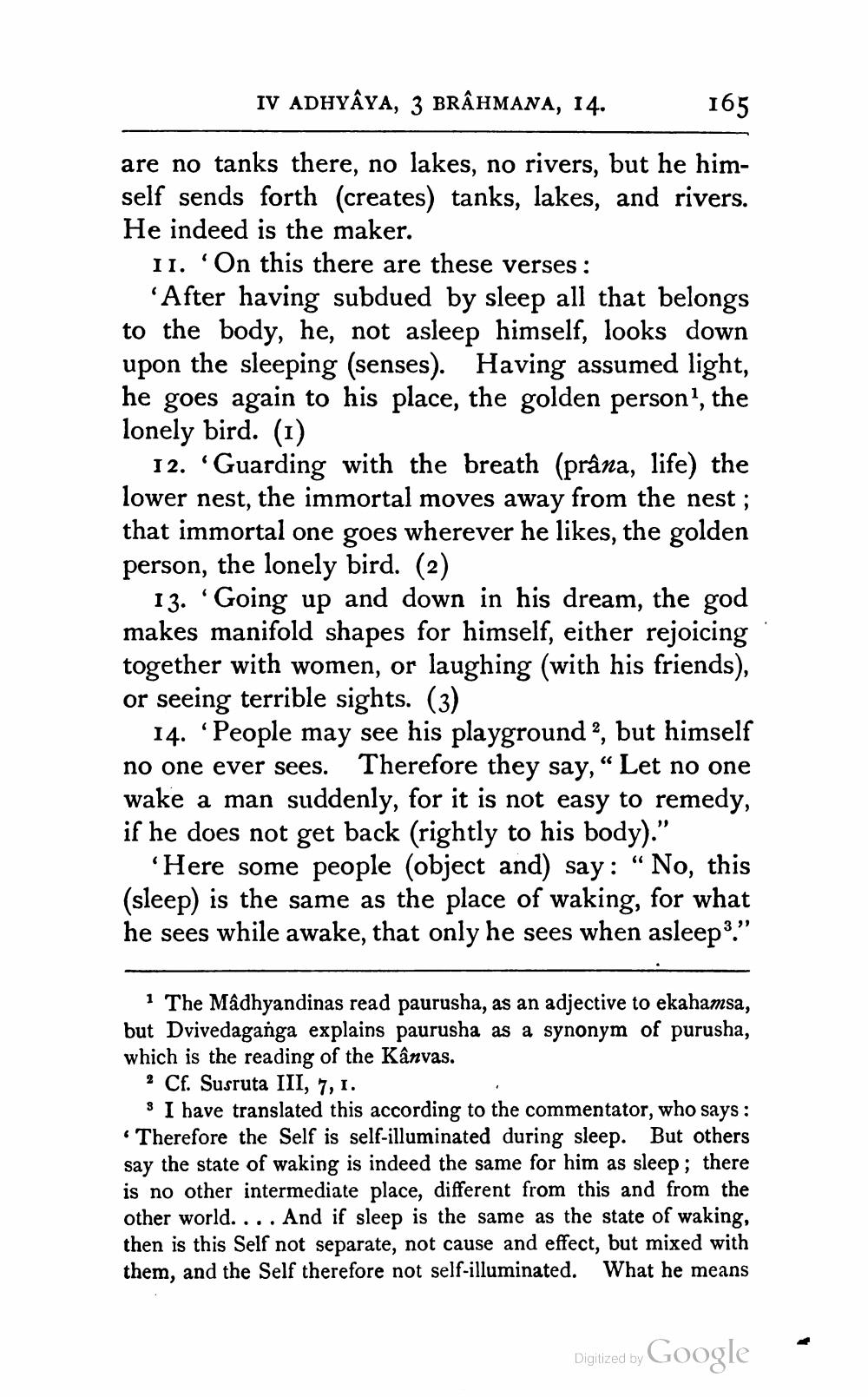________________
IV ADHYAYA, 3 BRÂHMANA, 14.
165
are no tanks there, no lakes, no rivers, but he himself sends forth (creates) tanks, lakes, and rivers. He indeed is the maker.
11. 'On this there are these verses :
'After having subdued by sleep all that belongs to the body, he, not asleep himself, looks down upon the sleeping (senses). Having assumed light, he goes again to his place, the golden person', the lonely bird. (1)
12. 'Guarding with the breath (prâna, life) the lower nest, the immortal moves away from the nest; that immortal one goes wherever he likes, the golden person, the lonely bird. (2)
13. Going up and down in his dream, the god makes manifold shapes for himself, either rejoicing together with women, or laughing (with his friends), or seeing terrible sights. (3)
14. People may see his playground ?, but himself no one ever sees. Therefore they say, “Let no one wake a man suddenly, for it is not easy to remedy, if he does not get back (rightly to his body)."
'Here some people (object and) say: "No, this (sleep) is the same as the place of waking, for what he sees while awake, that only he sees when asleep3."
1 The Mâdhyandinas read paurusha, as an adjective to ekahamsa, but Dvivedaganga explains paurusha as a synonym of purusha, which is the reading of the Kânvas.
2 Cf. Susruta III, 7, 1.
s I have translated this according to the commentator, who says: • Therefore the Self is self-illuminated during sleep. But others say the state of waking is indeed the same for him as sleep; there is no other intermediate place, different from this and from the other world. ... And if sleep is the same as the state of waking, then is this Self not separate, not cause and effect, but mixed with them, and the Self therefore not self-illuminated. What he means
Digitized by Google
+




